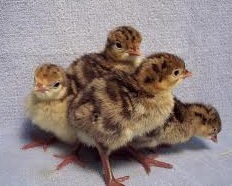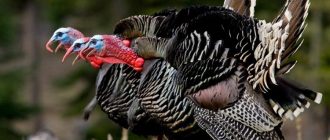Want to learn more about turkey poults? Read on for facts and info on new born turkeys, their behavior and their grown…
New born turkeys are known as turkey poults. They appear to be drastically different from their parents and bear a striking resemblance to normal chickens, guinea keets and peachicks. They are raised in much the same manner as well with the exception of a different feed.
Turkey poults are greatly dependant on their mothers for their survival. This is pretty much the case with all ground nesting birds and hence it is highly unnatural for them to be separated from their mothers.
Turkey Poults Behavior
Upon hatching, the poults take shelter under the warm wings of their mother. They begin to show signs of panic the moment they are separated from their mothers. If and when they do get distanced from their mothers they give out a “lost call” and the mother comes back running to comfort the little poult.
The poults can be seen running around the meadows chasing grass hoppers and other insects along with their mothers when in the open. They are also fond of sun bathing and dust bathing under the supervision of their mothers.
One of the unique things about turkey poults is that they move around in single files. They show signs of eagerness as if hurrying to reach a specific place on time. They can also be seen tumbling around and falling over when attempting to move in a single file. At other times they can be scattered about in the open but never do they go out of a fifty yard radius. At times a young poult may wander away from the flock chasing a butterfly or some other insect. Similarly, they may lose themselves while scratching their backs on a log lying on the ground. Once the young poult realizes that he has been left alone, he raises his eyes and neck to search for the flock in every direction. On failing to sight them he gives out a coarse cluck which is basically an s.o.s signal amongst turkeys. This alerts the rest of the flock who then starts looking for the lost poult. The mother gives out yelps and eventually the poult finds its way back into the flock.
During their initial days the poults are made to lie down on the ground under the wings of the mother. It takes a couple of months for the young turkeys to fly out of their nests. They start off by perching on low branches during night time.
Biologists suggest that turkey poults begin their socializing even before they are hatched. By the time the young turkey leaves the nest, it is quite well developed in terms of its social behavior. Vocal communications are an integral part of the development of the young poults. In fact the relationship of the newly hatched turkeys with their mothers rests solely on vocal communications. It is because of this reason you will find that turkey poults that are hatched in incubators have a very different social behavior as compared to those born in their natural environment.





